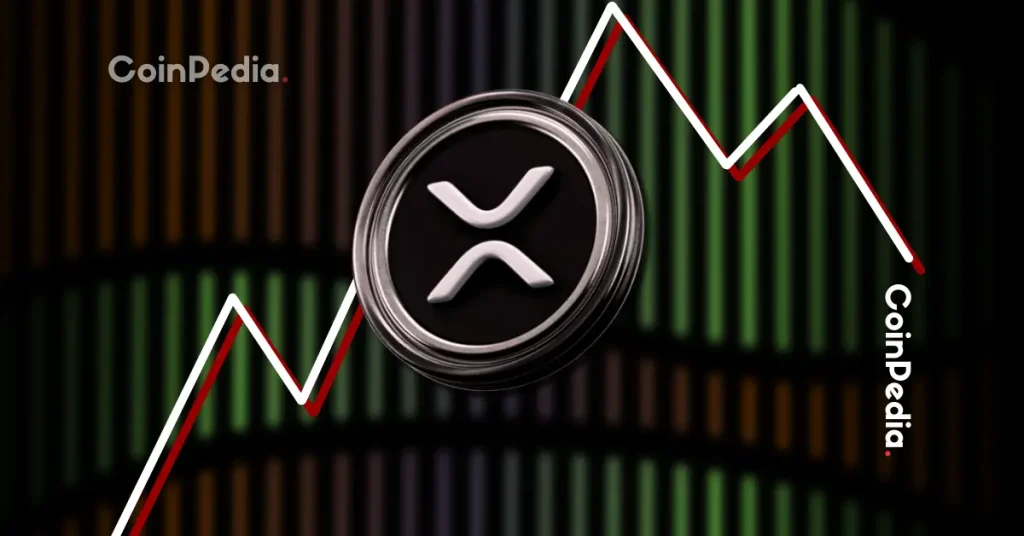Vitalik Buterin’s Polygon Comments Ignite Major Ethereum Governance Debate



The post Vitalik Buterin’s Polygon Comments Ignite Major Ethereum Governance Debate appeared first on Coinpedia Fintech News
Ethereum is once again in the spotlight this time for both praise and controversy. While co-founder Vitalik Buterin applauded Polygon and its co-founder Sandeep Nailwal for their remarkable contributions to the Ethereum ecosystem, Ethereum core developer Péter Szilágyi criticized the network’s internal governance, accusing the Ethereum Foundation of being overly centralized.
These opposing perspectives underscore both Ethereum’s rapid growth and its ongoing governance challenges.
Vitalik Buterin Praises Polygon’s ZK-EVM Efforts
Vitalik Buterin highlighted Polygon’s critical role in Ethereum’s scalability and innovation, commending its early work in zero-knowledge (ZK) proof technology. He praised the ZK-EVM project led by Jordi Baylina and Polygon’s infrastructure advancements such as AggLayer, which strengthen Ethereum’s Layer 2 ecosystem.
“Polygon has done incredible work in scaling Ethereum,” Vitalik said. “Their early investment in ZK-EVM and infrastructure projects like AggLayer show real commitment to Ethereum’s future.”
Beyond technology, Buterin also lauded Sandeep Nailwal for his humanitarian initiatives, emphasizing that few in the crypto world combine innovation with social good. Nailwal co-founded CryptoRelief, which supported biomedical research in India, and voluntarily returned $190 million in SHIB tokens to support the Balvi open-source pandemic project.
“Sandeep has shown that crypto can serve humanity, not just profit,” Vitalik noted. “Returning the SHIB funds and supporting open science was an act of integrity and vision.”
Buterin also encouraged Polygon to integrate advanced ZK technology into its PoS chain to achieve Ethereum Layer-1 security guarantees, noting that modern ZK-EVM solutions are now efficient and production-ready.
Péter Szilágyi Raises Concerns Over Ethereum’s Centralization
Péter Szilágyi , lead developer of Ethereum’s Geth client, voiced deep frustration with Ethereum’s governance model and Vitalik Buterin’s dominant influence. He warned that centralized decision-making within the Ethereum Foundation risks undermining Ethereum’s decentralized principles.
“Ethereum’s governance is quietly centralizing,” Szilágyi said. “A handful of insiders have more influence than the wider community, and that’s not the Ethereum I signed up for.”
Szilágyi added that long-term contributors often face diminished roles and poor recognition, forcing some to seek external funding or alternative income. He expressed concern that core developers are undervalued, despite being the backbone of Ethereum’s success.
“Developers who have worked on Ethereum for years are treated like outsiders,” he remarked. “Without proper support and recognition, the ecosystem risks losing its most experienced talent.”
Andre Cronje Criticizes Ethereum Foundation’s Lack of Support
Adding to the governance debate, DeFi pioneer Andre Cronje also shared his frustration about the Ethereum Foundation’s funding and communication practices. Despite being one of the most influential DeFi builders, Cronje claimed he has never received tangible support from EF.
“I’ve personally spent over 700 ETH on deployments and infrastructure,” Cronje said. “Yet I’ve never received a response, grant, or even acknowledgment from the Foundation.”
He compared his experience to other projects such as Sonic, stating that they received grants, audits, and marketing assistance, while independent developers like himself were left unsupported.
“Some projects get full business development support, others are ignored,” he added. “It’s not about money it’s about fairness and transparency.”
- Also Read :
- Ethereum Co-Founder Vitalik Buterin Redefines ZK and FHE Performance with ‘Efficiency Ratio’ Metric
- ,
Balancing Innovation With Decentralized Governance
These contrasting perspectives highlight Ethereum’s growing tension between innovation and governance. On one hand, Vitalik Buterin’s leadership continues to drive technological breakthroughs, Layer 2 expansion, and social initiatives.
On the other, developers like Szilágyi and Cronje warn that Ethereum’s decentralization is at risk if decision-making remains concentrated among a few individuals.
Ethereum’s future now depends on how well it can balance visionary leadership with transparent and decentralized governance. As Ethereum expands through initiatives like Polygon’s ZK-EVM, Layer 2 solutions, and institutional adoption, ensuring fair developer recognition and community-driven decision-making will be crucial to sustaining its long-term success.
“Ethereum’s strength has always been its community,” Vitalik once said. “If we lose that, we lose what makes Ethereum unique.”
Never Miss a Beat in the Crypto World!
Stay ahead with breaking news, expert analysis, and real-time updates on the latest trends in Bitcoin, altcoins, DeFi, NFTs, and more.
FAQs
Polygon’s ZK-EVM uses zero-knowledge proofs to scale Ethereum, improving speed, reducing fees, and enhancing Layer 2 security for users and developers.
Vitalik praised Nailwal for combining innovation with social impact and Polygon for advancing Ethereum’s scalability and Layer 2 ecosystem.

Why Is Crypto Market Up Today? Bitcoin Teases $114k
The post Why Is Crypto Market Up Today? Bitcoin Teases $114k appeared first on Coinpedia Fintech New...

Ripple Price Prediction As Whales Accumulate 30 Million XRP in 24 Hours
The post Ripple Price Prediction As Whales Accumulate 30 Million XRP in 24 Hours appeared first on C...

Pepe’s 25x Outlook Looks Big—Ozak AI Prediction Looks Bigger
The post Pepe’s 25x Outlook Looks Big—Ozak AI Prediction Looks Bigger appeared first on Coinpedia Fi...

